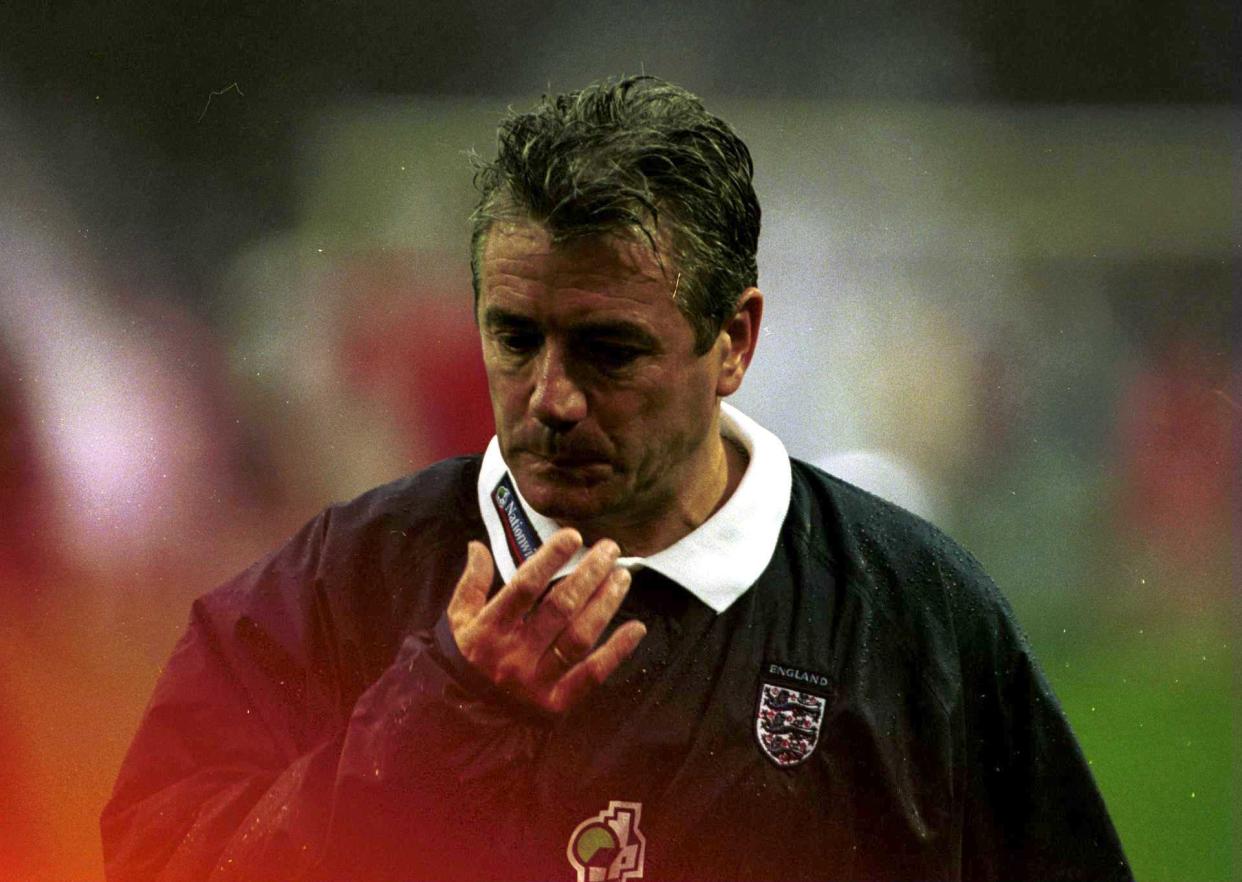Revealed: Why Keegan quit as England manager in the toilets

Kevin Keegan has revealed what led to him infamously quitting as manager of the England national team in the toilets of Wembley Stadium.
Keegan resigned in October 2000 following a 1-0 loss at home to Germany in the first qualifier for the 2002 World Cup.
It was the last game to be played at Wembley before the stadium was demolished and rebuilt.
In his new autobiography, My Life In Football, the former Newcastle manager states that he had wanted to resign immediately after Euro 2000, but started to look forward to the chance to improve on the showing at the World Cup that would follow two years after.
READ MORE: Why Newcastle’s negative football could see fans turn on Rafa
READ MORE: Mourinho fears United have lined up Zidane as his replacement
READ MORE: Barcelona president won’t rule out Pogba transfer
Keegan said: “Maybe, in hindsight, it would have been better if I had resigned after Euro 2000. I did consider it but, once I started thinking about the next assignment, qualifying for the 2002 World Cup, I still had the appetite to do the job.
“Despite everything, it was still an incredible honour to be in that position and I never lost sight of that fact. I wanted to have another go, reach another major tournament and make sure we did better next time.
“I was still backing myself. Yet the minute that game against Germany ended – the last match at the old Wembley – I knew that was it for me.”
He went on to explain the other problems he had with the job, with long periods of time between games:
“I gave it my best shot. I worked hard and tried my best to bang the drum for the English game. But I had also come to realise it wasn’t the job it was cracked up to be. I didn’t enjoy dealing with the FA.
“I didn’t like the way I had so little time with the players. I didn’t like the long, frustrating periods between games when the job could feel soulless and it wasn’t easy knowing how to fill my time, sometimes bored rigid. I didn’t like all sorts of things.
“In the end, I had stopped enjoying the job. In fact, that began a long time before I set off on the lonely, unforgiving walk from the England dugout to the tunnel at the old Wembley, listening to the vitriol of the supporters after losing 1–0 to Germany in our first qualifying match for the 2002 World Cup.
“The crowd was vicious and, as I entered the dressing room, I already knew it would be the last time I addressed the players. Some of the lads – Tony Adams and a couple of others – tried to talk me out of it. If they had known me better they would have understood it wasn’t negotiable. ‘I can’t go on like this,’ I told them. ‘I’m not getting the results. I want to thank you for what you’ve done but I’m done now.’ It wasn’t a long conversation.”
Keegan also described the circumstances of how he came to quit in the toilets, with the nation’s press giving him little choice:
“David Davies, the FA’s executive director, came in and we went into the room, adjacent to the changing area, where there was the bath and the toilets. The press loved that: ‘Keegan quits in toilets!’
“But where else could we go? The corridor outside was crawling with television reporters. The dressing room was full of wrought, emotional players and we needed somewhere quiet. I told David I couldn’t face it any more.
“I knew I would be branded a quitter. I knew it would be a permanent regret and that all kinds of hell would be unleashed in the press, but I didn’t see any point carrying on. I was honest. ‘It’s a step too far for me,’ I said. And that was it.”


